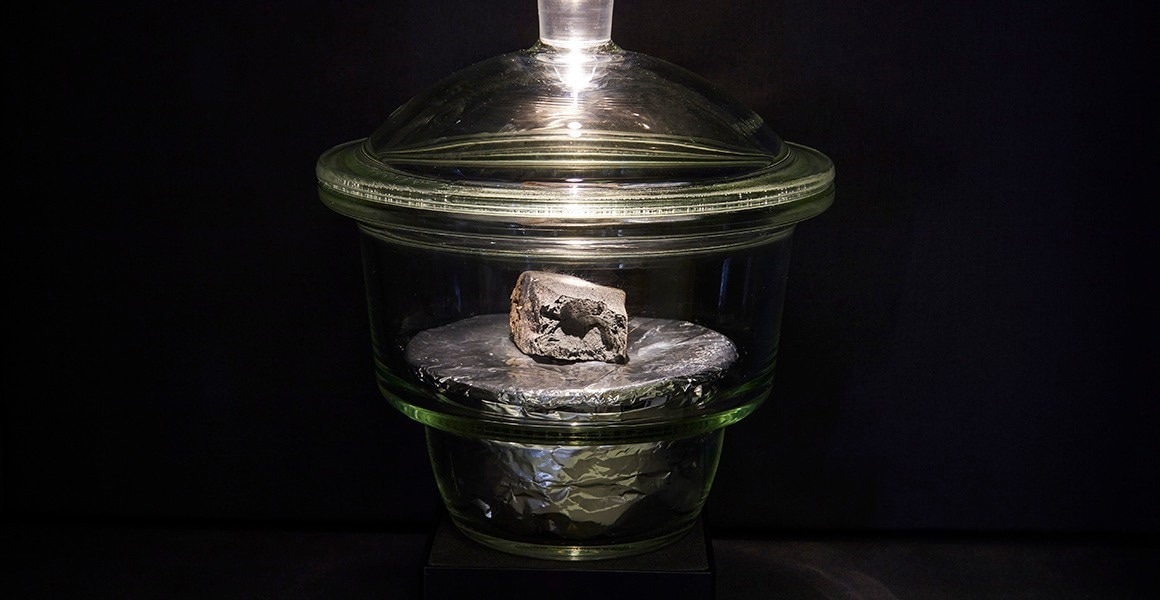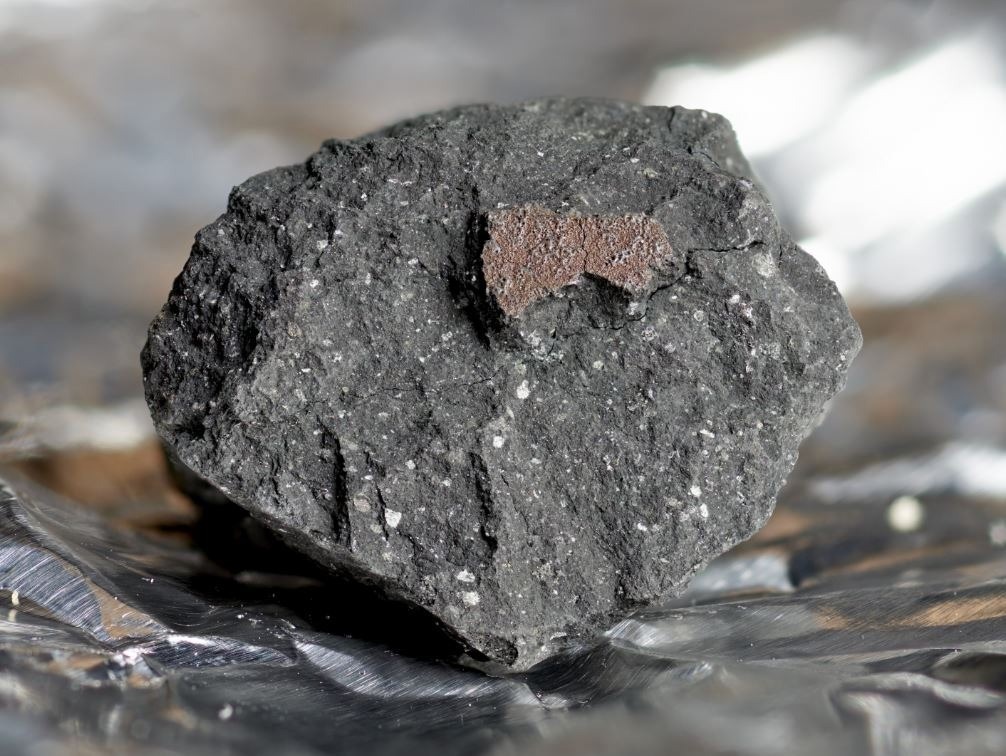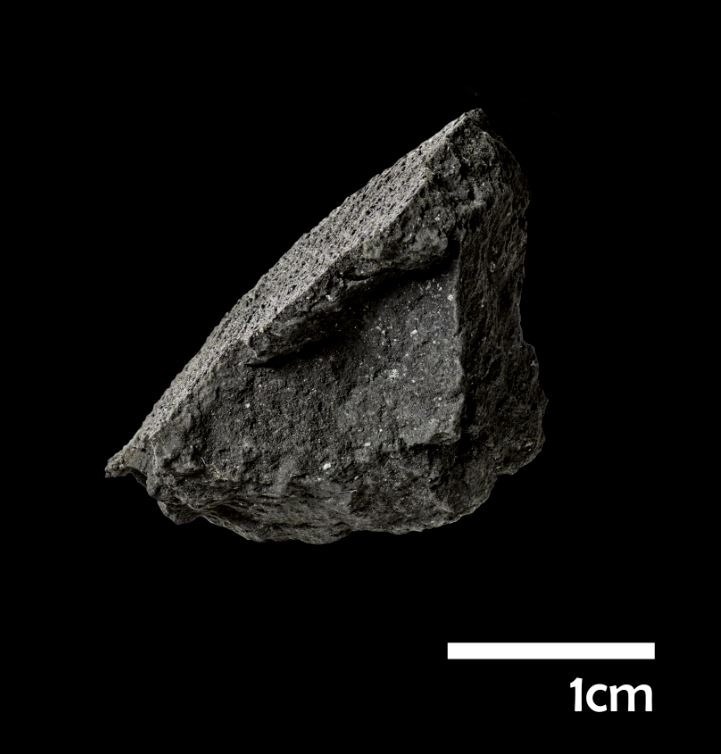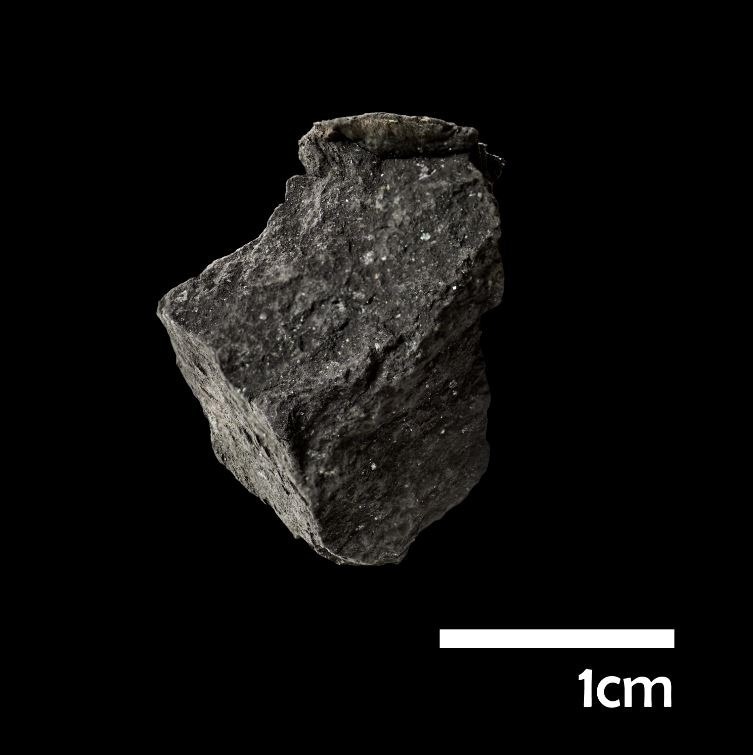AZoQuantum speaks with Dr. Ashley King, a UKRI Future Leaders Fellow at the Natural History Museum, about the Winchcombe meteorite that landed in Gloucestershire, England, in 2021. Now, new research has demonstrated how this carbonaceous chondrite meteorite is answering questions as to the origins of our oceans and life itself here on Earth.
Please could you introduce yourself and your professional background?
My name is Ashley and I’m a UKRI Future Leaders Fellow based at the Natural History Museum (NHM) in London. I’m a geologist by training but now use those skills to study meteorites and samples returned to Earth by space missions to learn about the origin of the solar system and the formation of planets.
What is the link between water and the emergence of life on Earth?
Water is the most abundant compound in the universe and key to the emergence of life on Earth. Every known organism needs water to survive, and as an important greenhouse gas, it plays a crucial role in the evolution of our atmosphere. Today, water is also a critical resource used in industry, agriculture, hygiene, etc.
Up until now, what have we understood about the origin of water on Earth?
This is one of the most important questions we have in planetary science – where did our oceans come from? We think the materials from which the Earth formed were dry, leading to the idea that water was delivered by icy comets or asteroids originating in the cold outer regions of the solar system. The composition of water in comets isn’t a great match for the Earth’s oceans, suggesting that water-rich asteroids were instead the main source.

Image Credit: Trustees of the NHM
In February 2021, a carbonaceous chondrite meteorite landed in Gloucestershire. What are carbonaceous chondrites and why was it significant that this meteorite was collected so quickly after landing?
Carbonaceous chondrites are some of the most primitive meteorites in our collections. They are fragments of asteroids that contain materials dating back to the birth of our solar system 4.6-billion-years-ago and the ingredients, such as water and organic molecules, needed to kickstart oceans and life here on Earth. The first samples of the Winchcombe carbonaceous meteorite were collected only hours after landing, so it gives us a chance to look back in time at the original composition of the solar system.
This meteorite has allowed researchers such as yourself to present significant new findings about how Earth acquired its water. Could you please describe your research, published recently in the journal Science Advances?
Because the Winchcombe meteorite was recovered so quickly, we were able to measure the composition of its water and organic molecules before any significant contamination by the terrestrial environment. We found that the meteorite contains around 11% water (by weight) locked up within minerals formed by chemical reactions between rock and ice.

Image Credit: Trustees of the NHM
The composition of the water is similar to the composition of Earth’s oceans, strengthening the idea that carbonaceous asteroids delivered water to the inner solar system. Winchcombe also contains extraterrestrial amino acids, which are the building blocks for more complex phases, such as proteins.
Why could this evidence not be collected from previous meteorite samples?
Most carbonaceous chondrites are recovered many years after landing and their compositions are modified by the terrestrial environment. Winchcombe was collected using gloves and sealed into bags about 12 hours after crash-landing on a driveway, making it a pristine meteorite where we can be confident that the water and organics are extraterrestrial in origin.
Where did this meteorite originate in the solar system, and do we know how old it is?
The Winchcombe meteorite produced a bright fireball in the sky that was reported by >1000 people! In the UK, we also have several camera networks designed to record and track fireballs as they travel through the Earth’s atmosphere, which allows us to calculate where any meteorites might land and the origin of the rock in the solar system. Video footage of the fireball helped us find the Winchcombe meteorite and show that it came from an asteroid orbiting around the Sun near Jupiter. When we studied the meteorite, we discovered inclusions rich in Ca and Al that were the first solid materials to form in our solar system, just over 4.6-billion-years-ago.
The asteroid also contained prebiotic molecules that are believed to be related to the origin of life. Do the combined findings from this research infer that the building blocks of life on Earth largely came from elsewhere in the solar system?
Yes, the Winchcombe meteorite contains extraterrestrial carbon, including amino acids, which are important for the formation of proteins. This means that not only could carbonaceous asteroids deliver water to the early Earth, but they likely also played a role in bringing the ingredients needed for complex molecules to start forming.
What impact will this research have on planetary physics and earth sciences?
It’s another important step towards understanding when, where, and how the Earth came to have water and how it evolved into the habitable planet that we see today. And if the Earth was receiving water from asteroids in the outer solar system, the same process was likely happening on Mars, Venus, and Mercury! However, we know that conditions on those planets are now very different to those on Earth – the big question is why?

Image Credit: Trustees of the NHM
At the same time, a new generation of telescopes is now enabling us to witness the birth of planets around other stars and even start to characterize their compositions and atmospheres. In the next decade, I expect that we’ll have a much greater understanding of how our solar system is related to all the other planetary systems out there.
What is still yet to be confirmed or discovered about the origin of Earth’s water, and what next steps should be taken?
Our meteorite collections are biased towards bodies that are either close to Earth, or those that can survive coming through the atmosphere and sitting in the terrestrial environment for long periods of time – that’s why fragile carbonaceous meteorites from the outer solar system are rare. It’s likely that the meteorite collections are not fully representative of all the different materials out there in the solar system, so we need to keep exploring and studying pristine samples from known bodies.

Image Credit: Trustees of the NHM
In December 2020, JAXA’s Hayabusa2 spacecraft returned with grains from the asteroid Ryugu, and in September 2023, NASA’s OSIRIS-REx mission will bring back samples of asteroid Bennu. Both are carbonaceous asteroids that will enable us to continue making discoveries about the origin of Earth’s water and organics.
What was the most exciting part of this discovery and research for you personally?
I’ve spent most of my career studying carbonaceous meteorites, so to have one pretty much fall into my lap in the UK was a dream come true! There have been lots of highlights over the last 18 months, but it was amazing to see how a large team of professional and citizen scientists from across the world have collaborated to piece together the history of the Winchcombe meteorite. The research is also only half of the story - we’ve had so much fun visiting schools, societies, and festivals and talking to people about why Winchcombe is important and how they can help us find the next UK meteorite.
Where can readers find more information?
https://www.nhm.ac.uk/our-science/collections/mineralogy-collections/meteorites-collection.html
https://www.nhm.ac.uk/press-office/press-releases/winchcombe-meteorite-holds-information-about-the-origin-of-earth.html
https://www.thewinchcombemeteorite.co.uk/
https://habitableworlds.weebly.com/
About Dr. Ashley King
 I’m a UKRI Future Leaders Fellow at the Natural History Museum (NHM) in London, where I study meteorites and other extraterrestrial samples to unravel the formation and evolution of the solar system. Careers highlights (in addition to Winchcombe!) include working with interstellar samples returned by NASA’s Stardust mission and asteroid Ryugu samples collected by JAXA’s Hayabusa2 spacecraft, and I’m excited to be part of the team that will start investigating asteroid Bennu samples in 2023.
I’m a UKRI Future Leaders Fellow at the Natural History Museum (NHM) in London, where I study meteorites and other extraterrestrial samples to unravel the formation and evolution of the solar system. Careers highlights (in addition to Winchcombe!) include working with interstellar samples returned by NASA’s Stardust mission and asteroid Ryugu samples collected by JAXA’s Hayabusa2 spacecraft, and I’m excited to be part of the team that will start investigating asteroid Bennu samples in 2023.
Disclaimer: The views expressed here are those of the interviewee and do not necessarily represent the views of AZoM.com Limited (T/A) AZoNetwork, the owner and operator of this website. This disclaimer forms part of the Terms and Conditions of use of this website.